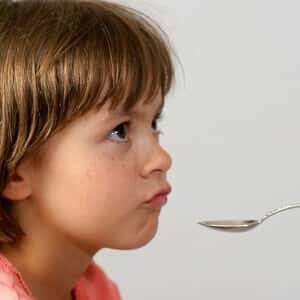
At this time of year, when folks squeeze into crowded shopping centers, gather for holiday parties or lift their voices for seasonal songs, viruses can travel fast.
What doctors term “upper respiratory infections” and the rest of us know as colds and coughs spread through the air as well as by direct hand contact. Frequent hand washing is a smart precaution, but it is not foolproof. One sneeze can send thousands of viruses throughout a room.
If you catch a viral infection, the runny nose, sneezing, headache and nasal congestion usually clear up in about a week. But the chest congestion and cough may last much longer. If it keeps you awake at night, healing becomes harder.
What can you do to ease a persistent cough?
OTC Cough Medicine:
Most people reach for over-the-counter cough medicine. Everyone assumes that the FDA has determined that such products are safe and effective.
How well do these products work in reality? That turns out to be an awkward question. A highly trained panel of volunteer doctors reviewed the medical literature on this topic and applied strict guidelines for analyzing placebo-controlled trials (Cochrane Database of Systematic Reviews, online Nov. 24, 2014). There were just 29 trials (19 in adults, 10 in children) that met their criteria as well-done studies. The Cochrane investigators concluded:
“There is no good evidence for or against the effectiveness of OTC medicines in acute cough.”
That was for the studies in adults. In children, most of the studies did not show a benefit. Even codeine-containing cough medicines have no evidence to support their use in children (Cochrane Database of Systematic Reviews, July 13, 2016).
What About Honey?
One study suggested that buckwheat honey works better than placebo to help calm a child’s cough (Archives of Pediatrics & Adolescent Medicine, Dec. 2007). Other studies have produced similar results (Journal of Alternative and Complementary Medicine, July 2010; Canadian Family Physician, April 2011; Pediatrics, Sep. 2012; Allergologia et Immunopathologia, Sep-Oct. 2015). A randomized controlled trial in Iran concluded that honey was more effective than diphenhydramine (Benadryl, etc) in easing kids’ nighttime coughs due to colds (PLoS One, Jan. 19, 2017).
If honey is to be used for a cough, it should be limited to youngsters older than a year old. Babies may develop botulism if given honey.
It is discouraging that an in-depth analysis was unable to establish that OTC cough medicines are helpful, given that Americans spend billions of dollars on them every winter.
Grandma’s Home Remedies:
Home remedies have not undergone testing and the FDA certainly does not sanction their use. But many readers of this column have found that old-fashioned approaches often work wonders.
Vicks on the Feet:
One remedy that readers like is Vicks VapoRub, but not on the chest: “I’ve just tried Vicks on the soles of my husband’s feet and I’m shocked at how well it worked. He’s been coughing for two weeks and now he’s stopped!”
Vicks VapoRub contains several herbal oils, including thymol. Many readers have found that thyme right off the spice rack makes a soothing tea: “I’ve had a good old-fashioned cold this past week and when the cough started on Wednesday I reached for your book and brewed up some of your thyme tea potion. Just two doses on Thursday stopped the coughing completely.”
Thyme Tea:
We are fond of a cup of tea made with a half to a full teaspoon of dried thyme leaves. We are convinced that the thymol in thyme leaves calms a cough extremely well. At least one doctor agrees. A German review of the medical literature found strong evidence for a combination of ivy, primrose and thyme as a cough medicine (Forschende Komplementarmedizin, online Dec. 14, 2015). In that review, a Chinese herb called Andrographis paniculata also fared well as a cough treatment.
Onion Syrup:
Another favorite is onion syrup:
“My grandmother used to make this for us when I was a child. I just made it for my 5-year-old son who was never sick before starting school and now has a bad cough. It still works like a charm.”
Onion syrup is made by simmering chopped onion in a sugar or honey solution. You will find details on such remedies and more in our book, The People’s Pharmacy Quick & Handy Home Remedies (published by National Geographic). You will find other simple solutions for coughs including the science to support Thyme Cough Syrup and Concord grape juice. We have some fabulous recipes for overcoming colds including Helen Graedon’s Chicken Soup, Chicken Adobo with garlic, plus two ginger tea recipes and a hot toddy mixture.
Revised 1/26/2017

